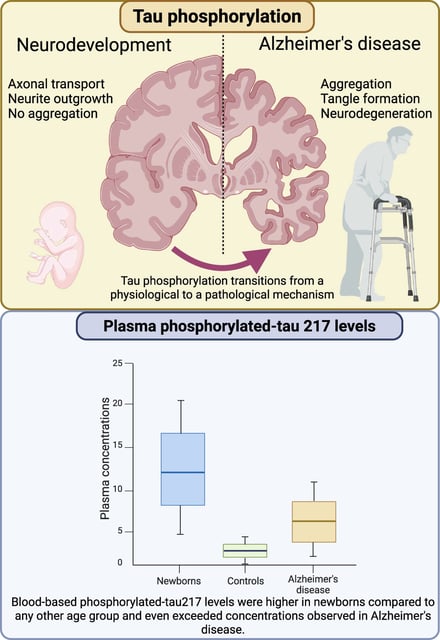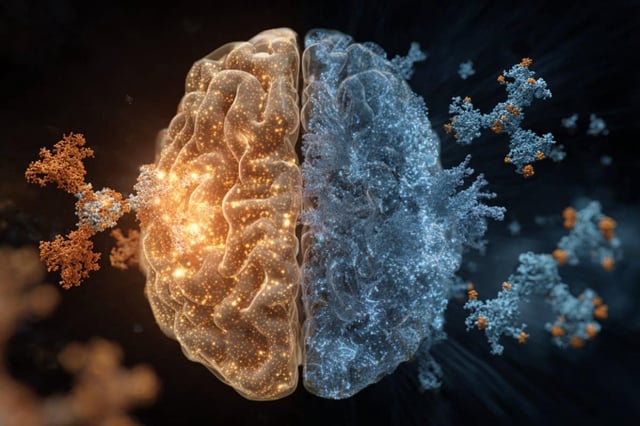Overview
- A multicenter study led by the University of Gothenburg measured plasma p-Tau217 in 462 participants spanning healthy newborns, premature infants, adults and Alzheimer’s patients.
- Healthy and premature newborns exhibited the highest p-Tau217 concentrations recorded, with levels declining to typical adult norms over the first few months after birth.
- Infant p-Tau217 levels inversely correlated with gestational age, suggesting that elevated concentrations support rapid brain growth under early birth conditions.
- Unlike in Alzheimer’s, where p-Tau217 is linked to tau aggregation and neurodegeneration, newborns tolerate high levels without adverse effects on brain development.
- Researchers propose that uncovering how infants regulate and clear p-Tau217 could reveal mechanisms to slow or prevent Alzheimer’s pathology.

